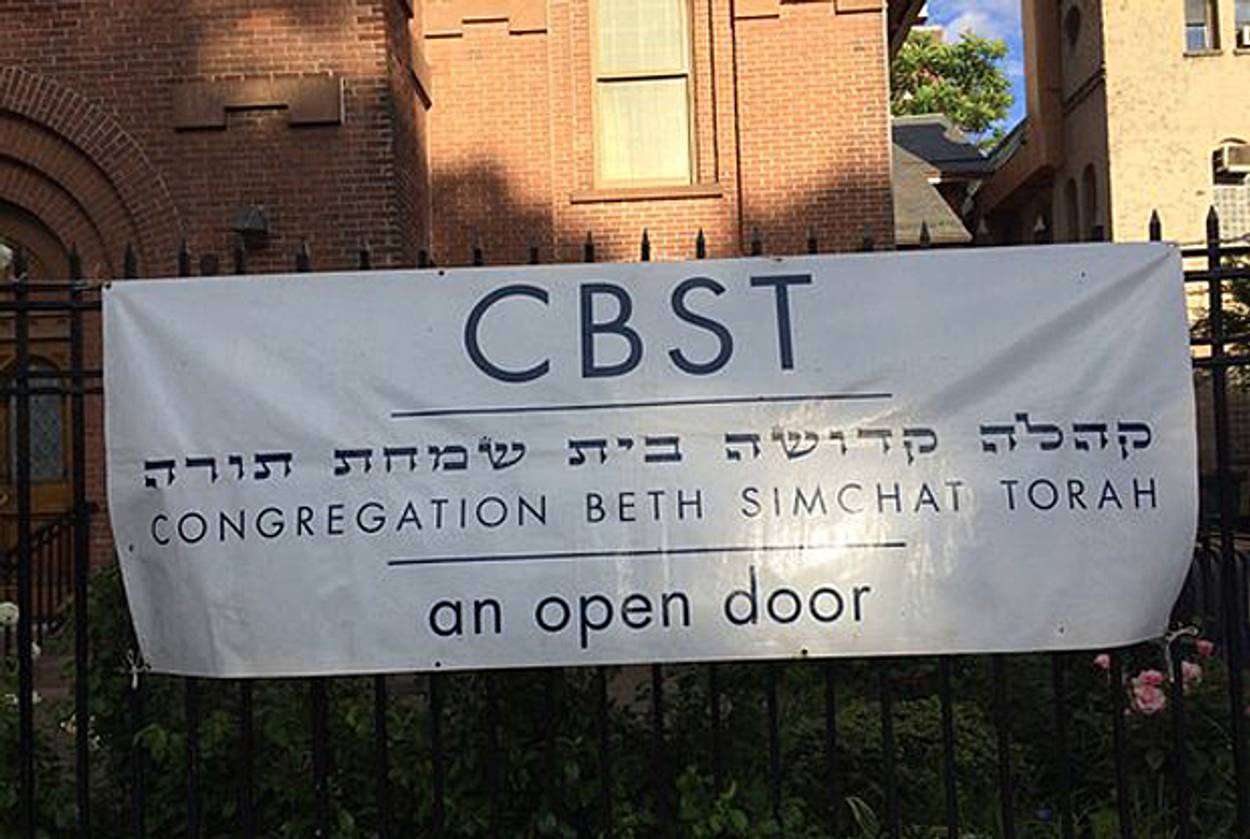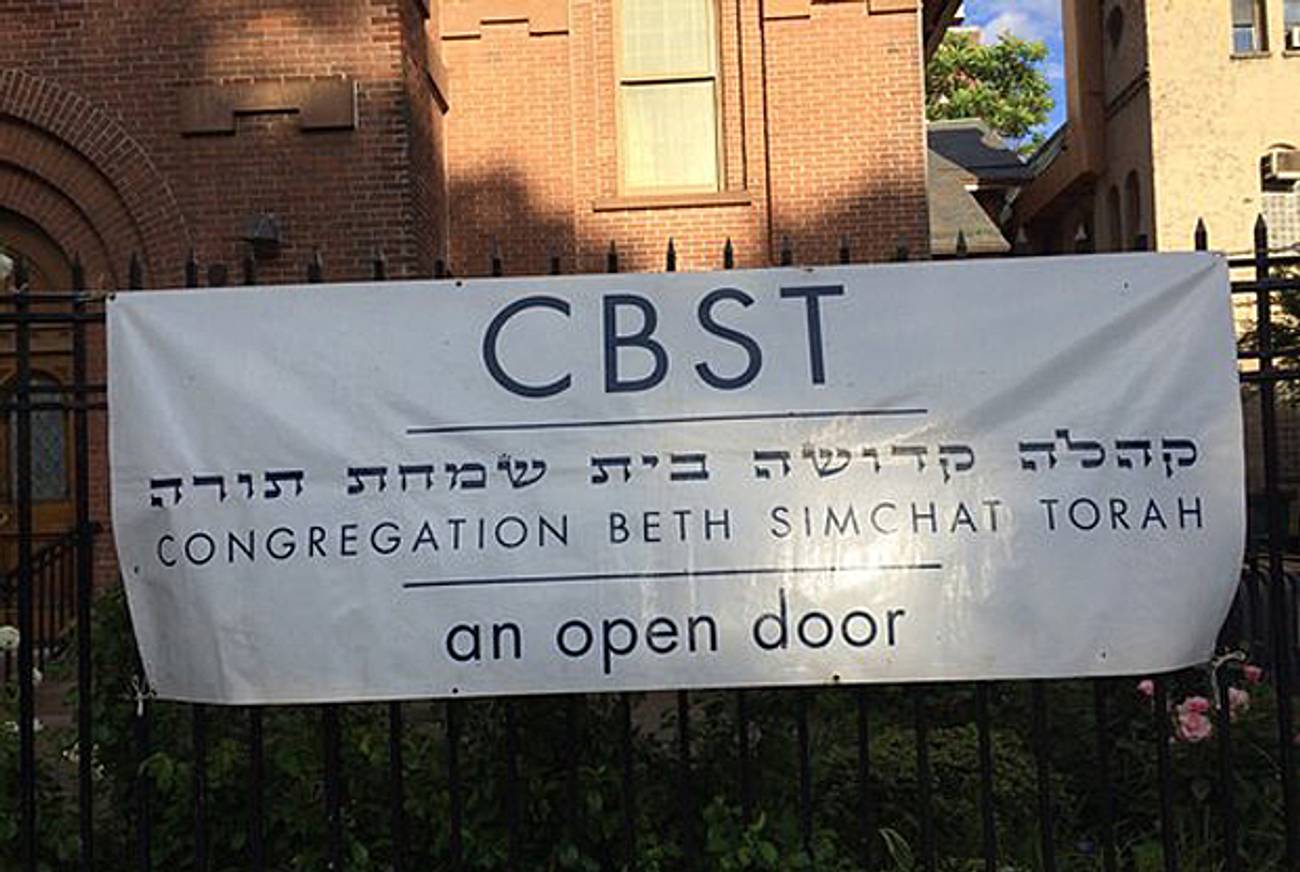We Can Be Vital Supporters of Israel and Still Question Its Policies
Congregation Beit Simchat Torah responds to Tablet




For the last 40 years, Congregation Beit Simchat Torah, the largest LGBTQ synagogue in the world, has been a vibrant spiritual community and a progressive voice within Judaism. Passionate, provocative, and deeply Jewish, CBST champions a Judaism that rejoices in diversity, denounces social injustice wherever it exists, and strives for human rights for all people. We are committed to Israel and engaged in supporting efforts to secure peace, justice and equality for all.
Over the last 40 years, CBST has welcomed lesbian, gay, bisexual, transgender and queer (and straight) Jews who join together for prayer, community, and social justice work. Through our Shelter of Peace, we have advocated vigorously for the housing of homeless children and teens. Through the Chesed (“lovingkindness”) group, members care for the ill, elderly, and grieving within the community. Rabbi Kleinbaum has spoken vigorously on the national stage for marriage equality, for racial equality, economic fairness, and for legislation to improve the lives of all Americans and of Jews all over the world. To diminish that holy work in the face of controversy is to do this thriving community a great disservice.
The August 21 article by James Kirchick regarding CBST was both disappointing and misleading. Even disregarding the many factual inaccuracies, the article misrepresents both CBST’s position on Israel and the tone of community within the congregation. CBST strives to be one of the few places in which a strenuous, nuanced, and—above all else civil–conversation can happen concerning what it means to be Jewish and engaged with Israel at a time of such great turmoil and pain.
After Friday night services on Aug. 15, a group of more than 100 CBST members and non-members gathered to share their views on the conflict and on the controversial reading of the names of Palestinian children under the age of 18 killed in the current conflict. Views varied widely. Which is just as it should be; expecting that 1,100 members will take an identical position on such a complex, emotionally-wrought, and enormous issue is unrealistic, and would shut down this necessary debate. As I said to the group: “Very few synagogues allow such a wide-ranging discussion as ours does. We can be deeply in support of Israel and not love everything that happens there. There is no single view.”
There is no single “CBST” view on the conflict. Rabbi Sharon Kleinbaum and the other CBST rabbis, the board, the members, and the community as a whole have varied and evolving views. We can be vital supporters of Israel and still question its policies. If we did not question, if we did not debate, if we did not call ourselves to a strict self-accounting, we would not be Jews.
This conversation has not torn CBST apart. It is bringing us together, in conversation, in action, and in prayer.
We mourn for all the victims of this war, while working for peace and for civil discourse among American Jews—whose voices and financial backing have a tremendous impact on the events in the Middle East. Reading aloud the names of Palestinian children who were killed, along with the names of fallen IDF soldiers, can in no way reasonably be viewed as “delivering Hamas propaganda.” It is exactly this kind of un-nuanced, divisive reductionism–designed to shut down dissenting voices, rather than to add valuable insight to the conversation—that we seek to avoid.
When we stop shouting, we can start talking. CBST will be continuing this conversation through a number of channels, including through a series of conference calls with members of the Knesset, rabbis, LGBTQ activists, and CBST members who have made Aliyah. We welcome all voices in this ongoing–and crucial–conversation. Join us as, together, we do the essential work of tikkun olam–a healing of our beautiful and broken world.
Dr. Nathan Goldstein, President
On behalf of Congregation Beit Simchat Torah Board of Directors
Dr. Nathan Goldstein is president of the Congregation Beit Simchat Torah board of directors